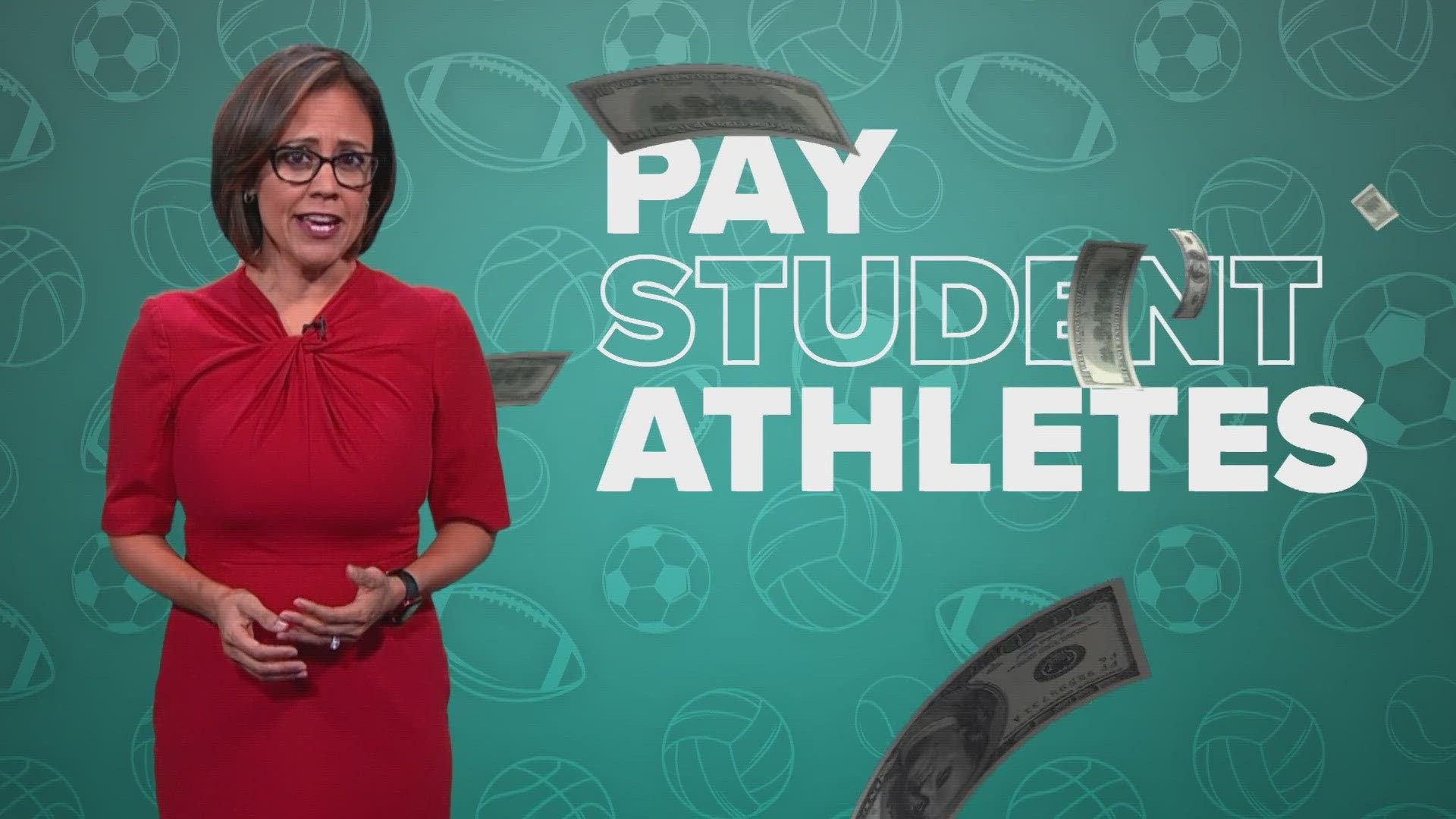FORT WORTH, Texas — TCU women's basketball star Sedona Prince – alongside two other NCAA student-athletes – have filed a lawsuit against the association and the Power 5 conferences (ACC, Big Ten, Big 12, SEC and Pac-12), claiming that rules that prohibit schools from paying their athletes violate antitrust law, according to court documents obtained by WFAA.
Prince joined Duke's Dewayne Carter and Stanford's Nya Harrison in filing a 70-page complaint through a California federal court where the NCAA has lost a series of antitrust claims in the past decade. In the complaint, attorneys representing the student-athletes, Jeffrey Kessler and Steve Berman, requested an injunction that would prevent the NCAA from enforcing rules that prohibit "pay for play" compensation for athletes and seeks damages for past payments the athletes would have received if the current rules were not in place.
This lawsuit comes two days after NCAA President Charlie Baker announced a new proposal: to create a new tier of Division I where schools with the most athletic resources can offer unlimited educational benefits, enter into name, image and likeness partnerships with athletes and directly pay them through a trust fund.
However, Baker's proposal stops short of allowing schools to pay athletes specifically for their athletic performance.
Baker and college sports leaders have been pleading with Congress to help the NCAA with a federal law to regulate the way athletes can be paid for NIL deals in order to avoid antitrust lawsuits like this case filed this week and another lawsuit filed by 32 female athletes against the University of Oregon -- Prince's former school. The lawsuit against the university could provide the first ruling on whether NIL activities are subject to Title IX. Data shows huge disparities between male and female athletes when it comes to these lucrative deals and partnerships.
Baker's proposal is referenced in this week's lawsuit filed by the players. The NCAA has historically argued that paying players directly would cause catastrophic damage to college sports, claiming they are academic-first institutions. The lawsuit argues that Baker's proposal provides evidence that the wealthiest schools could afford to pay their players.
"This step by the NCAA shows that paying college athletes is perfectly compatible with the big business of college sports and that the restrictions the NCAA seeks to maintain on these payments, including limiting them to "educational" benefits or payments through trust funds, cannot be justified in the current environment," the lawsuit reads.
NCAA stakeholders meet in January at their annual convention, but there’s no timeline on next steps or when these proposed changes could potentially go into effect.
More Texas headlines:

